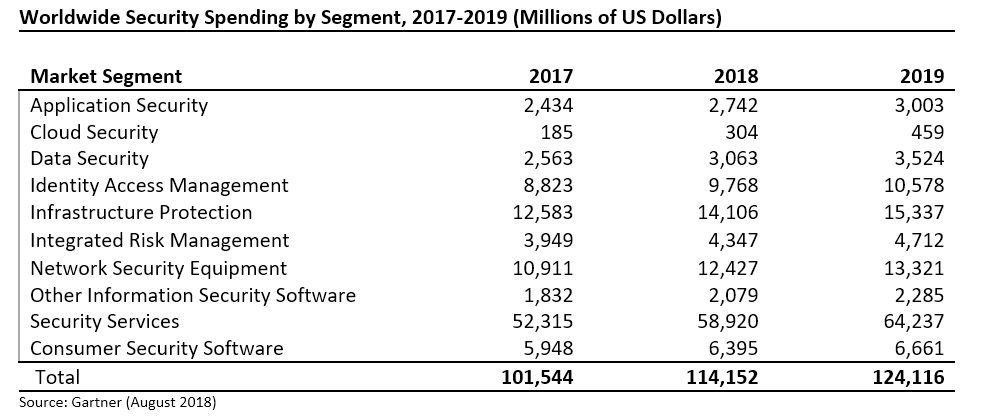
Gartner says that the worldwide spending on information security products and services will reach more than $144bn in 2018, an increase of 12.4% on last year. Then in 2019 the market is forecast to grow another 8.7% to $124bn.
An increased focus on building detection and response capabilities, privacy regulations such as GDPR, and the need to address digital business risks are the main drivers for global security spending through 2019.

At least 30 per cent of organisations will spend on GDPR-related consulting and implementation services through 2019.
Organisations are continuing their journey toward compliance with the GDPR that has been in effect since 25th May 2018. Implementing, assessing and auditing the business processes related to the GDPR are expected to be the core focus of security service spending for EU-based organisations, and for those whose customers and employees reside there.
Risk management and privacy concerns within digital transformation initiatives will drive additional security service spending through 2020 for more than 40 per cent of organisations.
Consulting and implementation service providers have retooled their service offerings over the past several years to support customers on their digital transformation journey. Security is a key factor in the uptake of that transformation process for regulated data, critical operations and intellectual property protection spanning public cloud, SaaS and the use of Internet of Things (IoT) devices.
Services (subscription and managed) will represent at least half of security software delivery by 2020.
Security as a service is on the way to surpassing on-premises deployments, and hybrid deployments are enticing buyers. A large portion of respondents to Gartner’s security buying behaviour survey said they plan to deploy specific security technologies, such as security information and event management (SIEM), in a hybrid deployment model in the next two years. Managed services represented roughly 24% of deployments, on average, it says.


